Join us on September 28 at 6:30pm for Arthur Miller: The Man Behind the Play with scholars, Dr. Joshua Polster, Dr. Stephen Marino, and Dr. Sue Abbotson.
Arthur Miller’s provocative play The Crucible exists in the world of 1692 Salem, but when Miller wrote it, he was living in a very different time. What led to him writing this play? What aspects of the 1950s world he was living made their way into the text?
In this symposium, three Arthur Miller scholars from the Arthur Miller Society will address the man behind the text, making connections between the world of Puritan Salem and the world of the Red Scare.
This program is funded in part by Mass Humanities, which receives support from the Massachusetts Cultural Council and is an affiliate of the National Endowment for the Humanities.

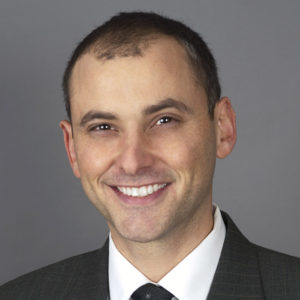 Joshua E. Polster is Associate Professor of Theatre at Emerson College. He was President of the Arthur Miller Society and currently serves on their Board of Directors. His publications include Stages of Engagement: U.S. Theatre and Performance 1898-1949, The Routledge Anthology of U.S. Theatre 1898-1949, Reinterpreting the Plays of Arthur Miller, a critical edition of Miller’s A Memory of Two Mondays, and numerous articles on Arthur Miller and U.S. theatre.
Joshua E. Polster is Associate Professor of Theatre at Emerson College. He was President of the Arthur Miller Society and currently serves on their Board of Directors. His publications include Stages of Engagement: U.S. Theatre and Performance 1898-1949, The Routledge Anthology of U.S. Theatre 1898-1949, Reinterpreting the Plays of Arthur Miller, a critical edition of Miller’s A Memory of Two Mondays, and numerous articles on Arthur Miller and U.S. theatre.
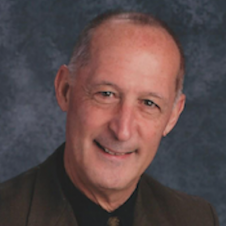
Stephen Marino is the founding editor of The Arthur Miller Journal.
He teaches at St. Francis College in Brooklyn. His work on Arthur Miller has appeared in many journals and essay collections. He is the author of “A Language Study of Arthur Miller’s Plays: The Poetic in the Colloquial” and the editor of the Methuen critical student edition of Miller’s “A View from the Bridge.” His recent essay collection, “Arthur Miller’s Century, Essays Celebrating the 100th Birthday of America’s Great Playwright” was published in summer 2017 by Cambridge Scholars Publishing. His book, “Essential Criticism, Arthur Miller’s Death of a Salesman and The Crucible, “ was published in the fall 2015 by Palgrave/Macmillan. He is co-editing a new essay collection, “Arthur Miller for the 21st Century,” with David Palmer, which will publish in Spring 2020 by Palgrave.
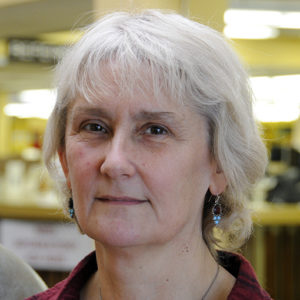 Susan C. W. Abbotson is Professor of English at Rhode Island College, where she mostly teaches drama. She is the author of A Critical Companion to Arthur Miller and Student Companion to Arthur Miller, and numerous articles on Arthur Miller and other modern and contemporary playwrights. Past President of the Arthur Miller Society, she now manages their website, and is the Performance Editor for the Arthur Miller Journal. She also authored Thematic Guide to Modern Drama, Masterpieces of Twentieth Century American Drama, Modern American Drama: Playwriting in the 1950s, and a critical edition of The Crucible.
Susan C. W. Abbotson is Professor of English at Rhode Island College, where she mostly teaches drama. She is the author of A Critical Companion to Arthur Miller and Student Companion to Arthur Miller, and numerous articles on Arthur Miller and other modern and contemporary playwrights. Past President of the Arthur Miller Society, she now manages their website, and is the Performance Editor for the Arthur Miller Journal. She also authored Thematic Guide to Modern Drama, Masterpieces of Twentieth Century American Drama, Modern American Drama: Playwriting in the 1950s, and a critical edition of The Crucible.
Moderated by Dr. Martin Blatt
 Marty Blatt has served as Professor of the Practice and Director of the Public History Program at Northeastern for the last five years. He coordinated bringing the Humanities Action Lab exhibit, States of Incarceration, to campus. Blatt is a board member of the Northeastern Humanities Center and part of the University Holocaust and Genocide Awareness Committee. Blatt was Curator of the exhibit, Long Road to Justice – African Americans and the Courts, on permanent display at the Brooke Court House. He serves on the Bostonian Society Interpretation Committee and on the Historian Advisory Board of the Freedom Trail Foundation. In spring, 2020, with the support of MASS Humanities and the New England Humanities Consortium, he is collaborating with the Massachuset Tribe to organize a public reading of William Apess’s Eulogy to King Philip. Blatt worked for the National Park Service in Boston and Lowell for twenty-four years as a historian and cultural resources manager. In 2013, he conceived and coordinated the historical pageant in Boston, “Roots of Liberty: The Haitian Revolution and the American Civil War.” Dr. Blatt has served as President of the National Council on Public History, on the Executive Board of the Organization of American Historians, and on the Board of MASS Humanities. Blatt’s museum credits include exhibits at Old South Meeting House and the Battle of Bunker Hill Museum, and a traveling exhibit on the Gulag, produced by the National Park Service, the Gulag Museum, and Amnesty International.
Marty Blatt has served as Professor of the Practice and Director of the Public History Program at Northeastern for the last five years. He coordinated bringing the Humanities Action Lab exhibit, States of Incarceration, to campus. Blatt is a board member of the Northeastern Humanities Center and part of the University Holocaust and Genocide Awareness Committee. Blatt was Curator of the exhibit, Long Road to Justice – African Americans and the Courts, on permanent display at the Brooke Court House. He serves on the Bostonian Society Interpretation Committee and on the Historian Advisory Board of the Freedom Trail Foundation. In spring, 2020, with the support of MASS Humanities and the New England Humanities Consortium, he is collaborating with the Massachuset Tribe to organize a public reading of William Apess’s Eulogy to King Philip. Blatt worked for the National Park Service in Boston and Lowell for twenty-four years as a historian and cultural resources manager. In 2013, he conceived and coordinated the historical pageant in Boston, “Roots of Liberty: The Haitian Revolution and the American Civil War.” Dr. Blatt has served as President of the National Council on Public History, on the Executive Board of the Organization of American Historians, and on the Board of MASS Humanities. Blatt’s museum credits include exhibits at Old South Meeting House and the Battle of Bunker Hill Museum, and a traveling exhibit on the Gulag, produced by the National Park Service, the Gulag Museum, and Amnesty International.
Tags: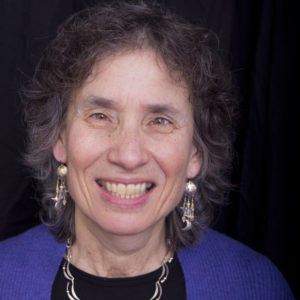 Judith Smith, Professor of American Studies at University of Massachusetts Boston, has taught courses on history of media, America on screen from 1932-1964, and US Culture since 1945. Her writing on postwar film, stage, radio and television appeared in various published essays and in her recent books, Visions of Belonging: Family Stories, Popular Culture, and Postwar Democracy, 1940-1960 (2004) and Becoming Belafonte: Black Artist, Public Radical (2014)
Judith Smith, Professor of American Studies at University of Massachusetts Boston, has taught courses on history of media, America on screen from 1932-1964, and US Culture since 1945. Her writing on postwar film, stage, radio and television appeared in various published essays and in her recent books, Visions of Belonging: Family Stories, Popular Culture, and Postwar Democracy, 1940-1960 (2004) and Becoming Belafonte: Black Artist, Public Radical (2014)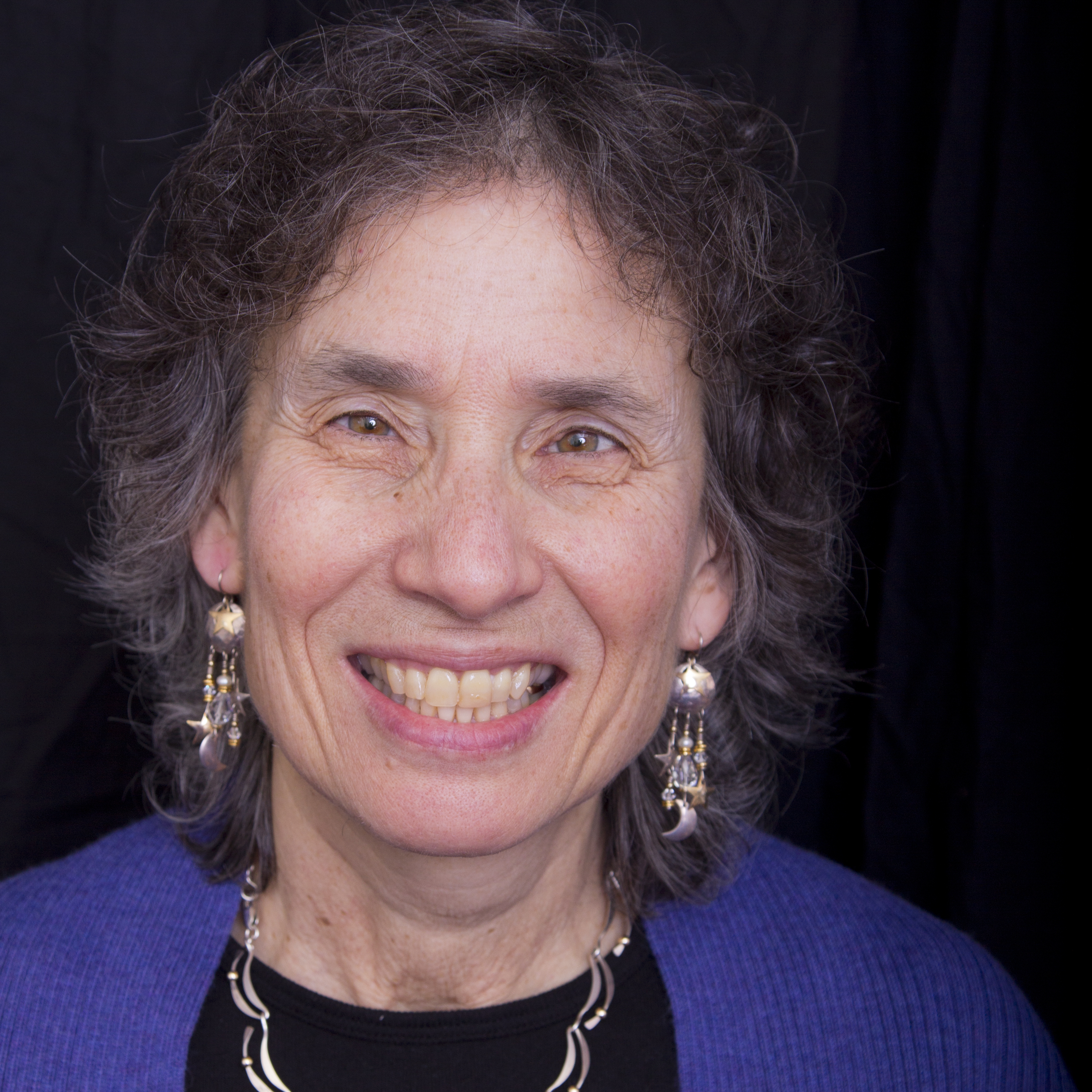


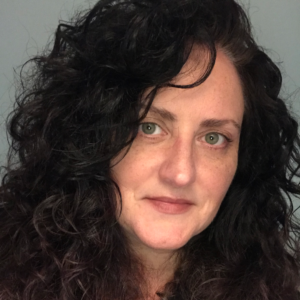 Debra Lavelle is a doctoral student in Northeastern University’s World History Department. She focuses on Early America, and is working on a dissertation entitled “A Desirable Calamity: Magic, the Body, and Transgressive Women in the Visual Culture and Public History of the Salem Witch Trials”. She received her undergraduate degrees in Art History and Archaeology from the University of Massachusetts at Dartmouth and her Master’s degree in Art History from George Washington University. She is particularly interested in how the visual and public presentations of the Salem Witch Trials have impacted ideas about gender, sexuality, and the female body from the seventeenth through the twenty-first centuries.
Debra Lavelle is a doctoral student in Northeastern University’s World History Department. She focuses on Early America, and is working on a dissertation entitled “A Desirable Calamity: Magic, the Body, and Transgressive Women in the Visual Culture and Public History of the Salem Witch Trials”. She received her undergraduate degrees in Art History and Archaeology from the University of Massachusetts at Dartmouth and her Master’s degree in Art History from George Washington University. She is particularly interested in how the visual and public presentations of the Salem Witch Trials have impacted ideas about gender, sexuality, and the female body from the seventeenth through the twenty-first centuries. Marty Blatt has served as Professor of the Practice and Director of the Public History Program at Northeastern for the last five years. He coordinated bringing the Humanities Action Lab exhibit, States of Incarceration, to campus. Blatt is a board member of the Northeastern Humanities Center and part of the University Holocaust and Genocide Awareness Committee. Blatt was Curator of the exhibit, Long Road to Justice – African Americans and the Courts, on permanent display at the Brooke Court House. He serves on the Bostonian Society Interpretation Committee and on the Historian Advisory Board of the Freedom Trail Foundation. In spring, 2020, with the support of MASS Humanities and the New England Humanities Consortium, he is collaborating with the Massachuset Tribe to organize a public reading of William Apess’s Eulogy to King Philip. Blatt worked for the National Park Service in Boston and Lowell for twenty-four years as a historian and cultural resources manager. In 2013, he conceived and coordinated the historical pageant in Boston, “Roots of Liberty: The Haitian Revolution and the American Civil War.” Dr. Blatt has served as President of the National Council on Public History, on the Executive Board of the Organization of American Historians, and on the Board of MASS Humanities. Blatt’s museum credits include exhibits at Old South Meeting House and the Battle of Bunker Hill Museum, and a traveling exhibit on the Gulag, produced by the National Park Service, the Gulag Museum, and Amnesty International.
Marty Blatt has served as Professor of the Practice and Director of the Public History Program at Northeastern for the last five years. He coordinated bringing the Humanities Action Lab exhibit, States of Incarceration, to campus. Blatt is a board member of the Northeastern Humanities Center and part of the University Holocaust and Genocide Awareness Committee. Blatt was Curator of the exhibit, Long Road to Justice – African Americans and the Courts, on permanent display at the Brooke Court House. He serves on the Bostonian Society Interpretation Committee and on the Historian Advisory Board of the Freedom Trail Foundation. In spring, 2020, with the support of MASS Humanities and the New England Humanities Consortium, he is collaborating with the Massachuset Tribe to organize a public reading of William Apess’s Eulogy to King Philip. Blatt worked for the National Park Service in Boston and Lowell for twenty-four years as a historian and cultural resources manager. In 2013, he conceived and coordinated the historical pageant in Boston, “Roots of Liberty: The Haitian Revolution and the American Civil War.” Dr. Blatt has served as President of the National Council on Public History, on the Executive Board of the Organization of American Historians, and on the Board of MASS Humanities. Blatt’s museum credits include exhibits at Old South Meeting House and the Battle of Bunker Hill Museum, and a traveling exhibit on the Gulag, produced by the National Park Service, the Gulag Museum, and Amnesty International.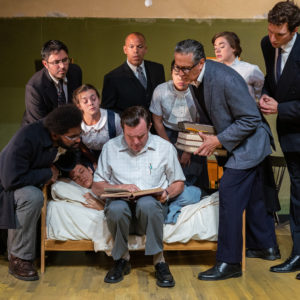 Join us Thursday, September 26th following the performance for a conversation with the cast and creative team about The Crucible.
Join us Thursday, September 26th following the performance for a conversation with the cast and creative team about The Crucible.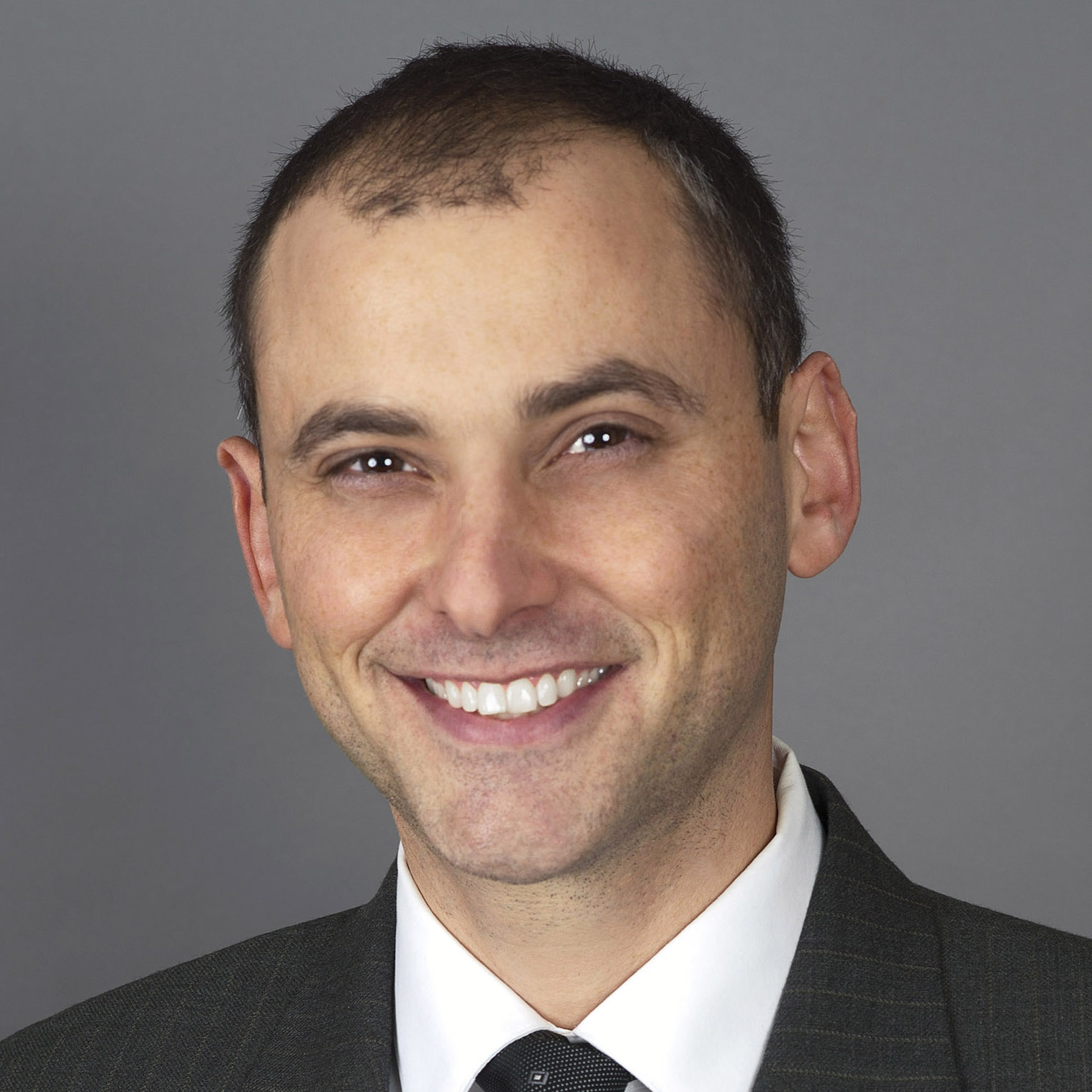
 Joshua E. Polster is Associate Professor of Theatre at Emerson College. He was President of the Arthur Miller Society and currently serves on their Board of Directors. His publications include Stages of Engagement: U.S. Theatre and Performance 1898-1949, The Routledge Anthology of U.S. Theatre 1898-1949, Reinterpreting the Plays of Arthur Miller, a critical edition of Miller’s A Memory of Two Mondays, and numerous articles on Arthur Miller and U.S. theatre.
Joshua E. Polster is Associate Professor of Theatre at Emerson College. He was President of the Arthur Miller Society and currently serves on their Board of Directors. His publications include Stages of Engagement: U.S. Theatre and Performance 1898-1949, The Routledge Anthology of U.S. Theatre 1898-1949, Reinterpreting the Plays of Arthur Miller, a critical edition of Miller’s A Memory of Two Mondays, and numerous articles on Arthur Miller and U.S. theatre.
 Susan C. W. Abbotson is Professor of English at Rhode Island College, where she mostly teaches drama. She is the author of A Critical Companion to Arthur Miller and Student Companion to Arthur Miller, and numerous articles on Arthur Miller and other modern and contemporary playwrights. Past President of the Arthur Miller Society, she now manages their website, and is the Performance Editor for the Arthur Miller Journal. She also authored Thematic Guide to Modern Drama, Masterpieces of Twentieth Century American Drama, Modern American Drama: Playwriting in the 1950s, and a critical edition of The Crucible.
Susan C. W. Abbotson is Professor of English at Rhode Island College, where she mostly teaches drama. She is the author of A Critical Companion to Arthur Miller and Student Companion to Arthur Miller, and numerous articles on Arthur Miller and other modern and contemporary playwrights. Past President of the Arthur Miller Society, she now manages their website, and is the Performance Editor for the Arthur Miller Journal. She also authored Thematic Guide to Modern Drama, Masterpieces of Twentieth Century American Drama, Modern American Drama: Playwriting in the 1950s, and a critical edition of The Crucible.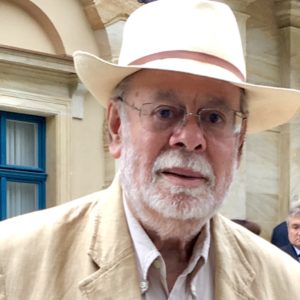 Stephen Nissenbaum is professor of history emeritus at the University of Massachusetts at Amherst and adjunct professor of history at the University of Vermont. His books include The Battle for Christmas; Sex, Diet, and Debility in Jacksonian America; and Salem Possessed: The Social Origins of Witchcraft (published in 1974 and co-authored with Paul Boyer). Salem Possessed was a finalist for both the National Book Award and the Pulitzer Prize (His book about the Christmas was also a Pulitzer Prize finalist.) Since his retirement, Nissenbaum has radically shifted his research: he has been writing about the composer George Frideric Handel, especially about the cultural politics of Handel’s great oratorio Messiah. Nissenbaum lives in northern Vermont.
Stephen Nissenbaum is professor of history emeritus at the University of Massachusetts at Amherst and adjunct professor of history at the University of Vermont. His books include The Battle for Christmas; Sex, Diet, and Debility in Jacksonian America; and Salem Possessed: The Social Origins of Witchcraft (published in 1974 and co-authored with Paul Boyer). Salem Possessed was a finalist for both the National Book Award and the Pulitzer Prize (His book about the Christmas was also a Pulitzer Prize finalist.) Since his retirement, Nissenbaum has radically shifted his research: he has been writing about the composer George Frideric Handel, especially about the cultural politics of Handel’s great oratorio Messiah. Nissenbaum lives in northern Vermont.